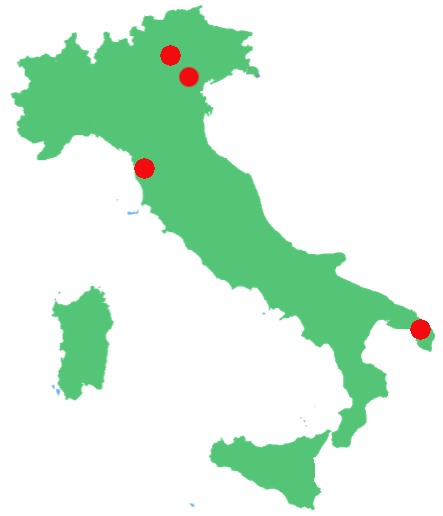FBS
Theory of Few Body Systems
Ab-initio studies of nuclear structure and nuclear reactions in light systems
Abstract
The description of nuclei is a difficult challenge still nowadays. Such systems can be seen as a collection of protons and neutrons, particles in turn composed by quarks. However, the study of
nuclei starting from the mutual interaction of quarks is very complicated and still in a semiqualitative status. An "economic" but realistic description of nuclei can be obtained by considering them as composed by "structureless" protons and neutrons, interacting through mutual forces. The accurate understanding of these forces is one of the main goal of Nuclear Physics.
The present project is directly connected to this problem. In fact, the theoretical study of a nucleus composed by A protons and neutrons, starting from their mutual interactions, goes through the solution of a set of quantum mechanical equations of motions, which becomes more and more complicated as A increases. Only for relatively small value of A (A<6-8) numerical techniques exist which can accurately solve these equations. The first goal of the "Few-Body Systems" (FBS) project is to devise better and better numerical techniques, allowing for the solution of these equations of motions, in order to study the structure of these "light" nuclei, and to understand also their dynamics (fusion reactions, radioactive decay, breakups, scattering of external probes, etc.).
Only by doing so, it will be possible to provide a better description of the nuclear interaction, which, in turn, will allow for accurate studies of a large variety of nuclear processes: fundamental symmetries, search of particles of unknown type (dark matter), astrophysical studies (evolution of stars, structure of neutron stars, etc), production of new species of nuclei, applications to the medicine (nuclear magnetic resonances, hadrotherapy, etc.), and so on.
The numerical techniques under development are also applicable to systems composed of few atoms. Therefore, it is possible to investigate the so-called "universal properties" of few-body systems, a very interesting topic connecting different fields of Physics.
Currently there are 10 Researchers participating to the FBS project: 1 in Lecce, 3 in Padova, 3 in Pisa, and 3 at TIFPA in Trento, with a wide and solid expertise in the following techniques:
- Chiral effective field theory and chiral perturbation theory
- Hyperspherical Harmonic methods
- Similarity transformations and effective interaction methods
- Lorentz integral transform
- Multi-channel algebraic scattering methods
- Efimov Physics


